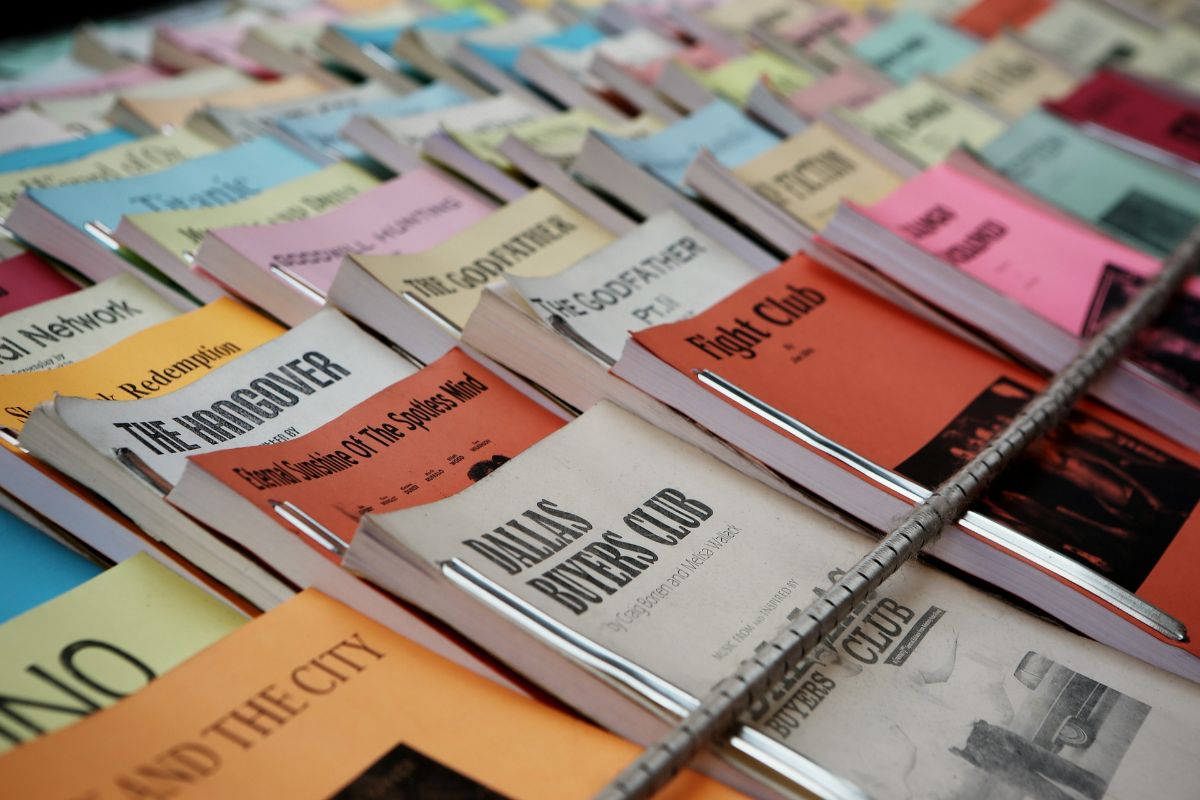
Along with writing a book, learning how to write a script always catches our attention. In fact, although it is thought to be easier than a novel, in reality it can become a real torture if you do not apply the principles and keys that it must have well.
Therefore, If you are in the process of creating a script and you do not want to end up doing the job two or three times, here we leave you the most important that you should keep in mind.
what is a script

Let's start with the easy, knowing exactly what a script is. Many think that it is only saying what phrases each character has to interpret and that's it, a kind of theater. But the truth is that it goes much further than that.
According to the RAE, a script is:
"Written in which some ideas or things have been briefly and orderly noted in order to serve as a guide for a certain purpose."
«Text in which the content of a film, a radio or television program, an advertisement, a comic or a video game is exposed, with the necessary details for its realization.»
In other words, we are talking about a document that reflects the most important aspects of a project, but not only the dialogues, but also emotions, context, ways of interpreting, etc.
How to write a script

Now that you are clear about what a script is, let's dive into the steps you must take to create it. We warn you that It is not a short process, much less an easy one. It will require patience, time and a lot of thought. It's like a novel but where you have to develop the plot in a different way.
So, the steps you need to take are:
Have an idea
It's essential. If you want to write a script the first thing you need is an idea to unleash your creativity and develop it. The worst thing for many is that you must condense all that idea into a single sentence, which will be the title of the script.
But don't worry, normally a provisional one is put on and then it is changed for the definitive one when the whole script is done.
inside the thought, you have to develop everything that is going to happen, when it happens, to whom, what problem they are going to have, etc.
It is important that you do it as a summary that will serve for the synopsis, but also create a more extensive document in which you fully develop the entire story of the script. Be careful, it is not really going to be the script but a resource that you will use when writing it.
Characters
It's time to get into the skin of each of the characters that are going to be part of the story. You need know them as if they were your family; know the good and the bad, the defects and virtues of each one. And the role they play in history.
At this point every writer has a technique. What some do is fill out a file with basic questions and then, when they write, they edit it to find out those details they have discovered. Others, however, work them thoroughly before getting to work. Here you have more freedom.
The card game
Actually, it is not a game in itself, because it is another of the points in which you are going to take the most time. And it is that we have not really started to write the script yet, but the resources you need to do it.
What is the card game? Well, it's about, With the broad summary of the idea, draw on cards the different scenes that your script will contain. Remember that, depending on the length of the script, it should be longer or shorter. One is not the same for a movie as it is for a television commercial.
Normally these scenes are the fundamental points that your script should have, from the beginning to the end.
Develop those cards
Now, it's time to know what is going to happen on those cards, who is going to participate in the scenes, how they will start and end, what conflict they will have, etc. It is not necessary that you make all of them in detail, just get an idea of how it's going to look.

script time
Now yes, with everything we've done before, we can start working on the script. And this time there are two ways to do it:
- Creating a literary script and then the script itself. Yes, it is more work, but later when creating the final one it will help you to shorten the time you are going to dedicate to it. This differs from the next one that we are going to propose in that it focuses more on developing the scenes but not putting the dialogues, but it would be done in the next one.
- Create the script directly. That is, scenes and dialogues at the same time. The problem is that, since you don't really know what's going on or how the scene happens, you can have problems making the dialogues realistic and consistent.
Once finished, read again
It is very common for the beginning to have a low or medium quality and the end to be high. It's because when you get used to the story, and live it, the dialogues are much better.
So once you're done, it is important to rewrite, if necessary, again to see if you can give it that same quality from the end to the beginning. When you notice that you do not have to change anything, it will be time to leave it.
Keep it at rest or let someone else read it
At this point writers usually do two things:
- Or the they keep in a drawer to pick it up a few months later and reread it and rewrite the parts they don't like.
- Give it to someone to read and give him your opinion. In this case, it must be a person with knowledge of scripts and who is objective, who tells you if something is not understood, if it is not clear, or if you have errors in the script. Otherwise, your opinion will not be worth it.
Actually both things can be done; It already depends on the experience you have and how confident you are in your project to present it.
Do you have doubts about how to write a script? Ask us and we will try to help you.